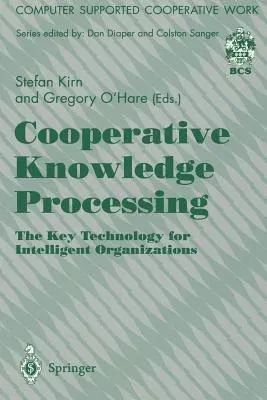In the light of the challenges that face today's organizations, there is
a grow- ing recognition that future market success and long term'
survival of enter- prises will increasingly depend upon the effective
usage of information technology. Of late, a new generation of
terminology has emerged to describe enterprises. This terminology draws
heavily upon the virtual concep- virtual reality, virtual organization,
virtual (working) environment, and indeed virtual product. However,
developing computerized organisations for the 21st century demands
serious thought with regard to the judicious integration of
organizational theory, design and practice with research tools and
methods from within information processing technology. Within this book,
we approach this aim from the perspective of a radically decentralized
(possibly virtual) enterprise. We assume that organizations are becoming
increasingly process-orientated, rather than adhering to the former more
traditional organizational structures based upon task oriented models.
This approach has proved illuminating in that, due to the inherent
autonomy of organizational subunits any approach to coordinating
decentralized activ- ities (including workflows and business processes)
necessitates a cooperative style of problem solving. This book
introduces the reader to a stimulating new field of interdiscipli- nary
research in cooperative problem solving. In Chapter 1 Kim presents a
view of three central discip14tes, namely those of Organizational
Theory, Computer Supported Cooperative Work (CSCW) and Distributed
Artificial Intelligence (DAI). The applications given here demonstrate
how future enterprises will benefit from recent advances in the
technological arena of cooperative knowledge processing.


